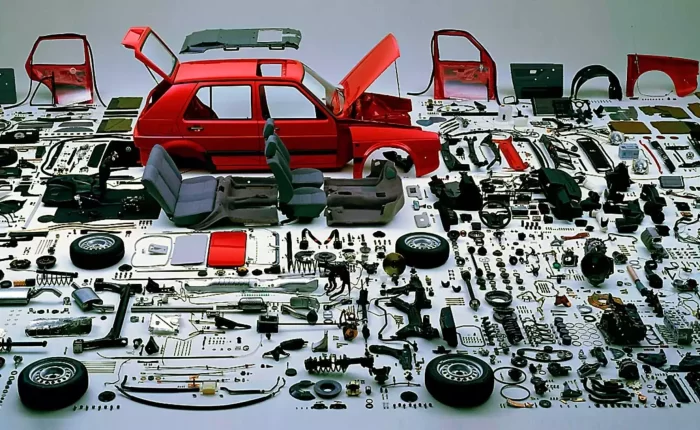The Automotive Parts Market Continues To Grow

The Automotive Parts Market continues to grow due to a growing demand for replacement parts and an increase in vehicle production. Additionally, digitalization of component delivery services is expected to boost the market.
However, the pandemic caused many consumers to delay inspections and discretionary repairs, which has decreased sales for some components. The industry is also seeing a shift towards e-commerce.
Electrification
The automotive parts market is booming, thanks to online purchasing and new distribution channels. The industry is dominated by large companies, such as Robert Bosch GmbH, DENSO Corporation, and ZF Friedrichshafen AG. These major players are expanding their product portfolios and enhancing their services. They are also increasing their presence in the global market.
The global automotive parts market is also experiencing a shift in consumer demand. More and more consumers are purchasing their car parts online, which offers them a greater selection of options and competitive prices. This trend is expected to continue in the future.
Auto parts manufacturers are prioritizing sustainability in their production processes. They are using 3D printing technology and reducing carbon footprints. Moreover, they are using recycled materials in their products to reduce the impact on the environment. The demand for sustainable products is driving the growth of the auto parts market. However, a rise in raw material prices could impede the market’s growth.
Autonomous vehicles
The global auto parts market is growing due to several factors, including the increase in e-commerce and consumer buying trends. The industry has adapted to these trends by offering new products and services that cater to consumers’ needs. These developments have also driven the adoption of new technology, such as 3D printing.
The market is also expected to grow because of the rise in demand for electric vehicles. These vehicles require specific automotive components, such as batteries and charging infrastructure. In addition, the development of autonomous vehicles will drive the demand for sensors and other systems.
The market is competitive and fragmented. Major players such as Bosch and DENSO dominate the industry. Smaller competitors focus on niche markets and are expanding into online channels. Offline channels continue to drive growth, but e-commerce might diminish their share in the future. Offline channels offer tactile experiences, which boost sales.
E-commerce
The automotive parts industry is undergoing significant changes as customers increasingly prefer online shopping. This trend has prompted major companies to invest in e-commerce platforms to boost their revenue generation practices. Advance Auto Parts, for example, recently launched cross-banner visibility to help its customers and associates locate inventory across geographically diverse locations.
While the COVID-19 pandemic impacted this market, it has since shown resilience and flexibility. In fact, private automobile ownership is increasing globally due to a decline in public transportation options, resulting in increased demand for auto parts.
The e-commerce automotive aftermarket is expected to grow rapidly. This is because customers prefer the convenience of buying products on an online platform and comparing prices. Additionally, the e-commerce aftermarket is expected to benefit from the rise of DIY vehicle maintenance and repair. The market is also driven by the growing need for more efficient and safer cars. Moreover, the increase in car lifespan will lead to more wear and tear, which is another factor driving the market.
Global market
The global market for automotive parts is projected to grow significantly over the forecast period, due to increased demand for replacement car parts. This growth is driven by a number of factors, including the increasing popularity of crossover and long-distance vehicles, which require more frequent servicing and replacement parts.
Auto part manufacturers are adjusting their strategies to accommodate these changes. They are also implementing new technologies to meet customer demand. For example, they are offering remanufactured parts to keep costs down. Additionally, they are providing a range of alternative fuel options for customers to choose from.
The market for auto parts is a competitive terrain, with many global players competing to provide high-quality products and services. These companies include large corporations with extensive product portfolios, such as Bosch and DENSO, and smaller, niche competitors that specialize in particular markets. Moreover, e-commerce is boosting sales of automotive parts by making them available to more consumers. As a result, the competition between global and local car parts suppliers is intensifying.